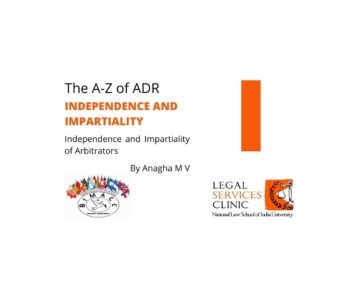A-Z of ADR: Decision Making in ADR
All ADR processes are geared towards the goal of dispute resolution, conflict management, and amicable settlement. Decision-making plays an important role in the achievement of these goals, and ADR mechanisms vary greatly in their placement and formality of decision-making power. Differences can most prominently be observed along lines of party involvement and autonomy. Arbitration is more of an adversarial and adjudicatory process than both conciliation and mediation. Further, statutory grounding and the availability of […]
Read More







